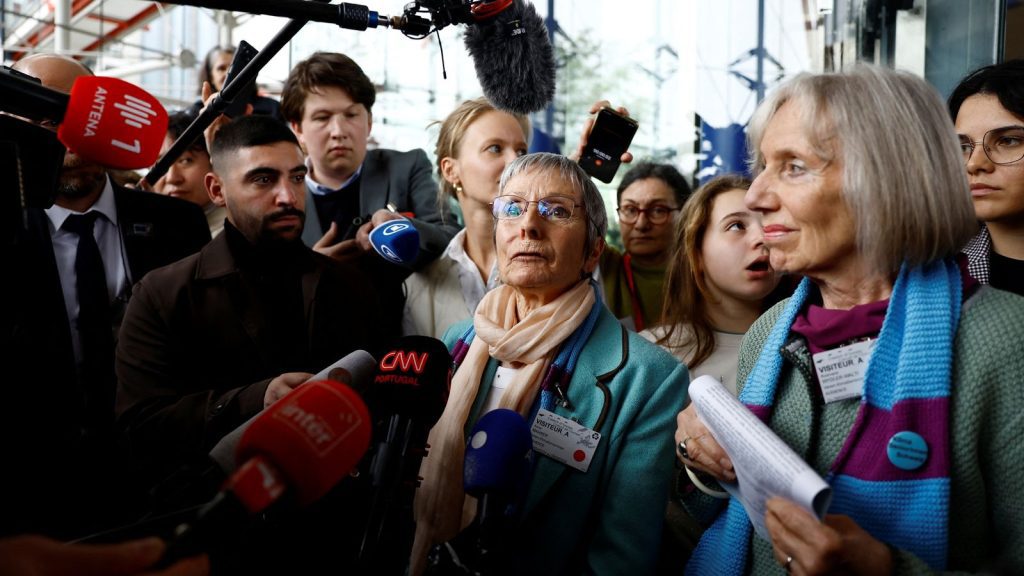Key Impact Points:
- In a major climate case, the European Court of Human Rights ruled in favor of elderly Swiss women, marking the first time the powerful court has addressed climate change and setting a significant legal precedent.
- This decision is the first time the influential court has dealt with climate change, establishing an important legal standard.
- The case shows the connection between climate change and human rights, underlining the urgent need for action.
- Switzerland was found to have violated Article 8 (right to respect for private and family life) and Article 6 § 1 (access to court) of the European Convention on Human Rights.
- The ruling could have broad implications for climate litigation and policy in Europe.
- Apart from the landmark ruling in the Verein KlimaSeniorinnen Schweiz case, the European Court of Human Rights (ECHR) also addressed climate-related complaints in two other cases: Carême v. France and Duarte Agostinho and Others v. Portugal.
- The Carême v. France case involved a complaint by a former mayor of Grande-Synthe, alleging France’s inadequate action to prevent global warming, but the application was declared inadmissible.
- The Duarte Agostinho and Others v. Portugal case involved the severe effects of climate change, with the applicants claiming violations of their rights, but the case was declared inadmissible due to non-exhaustion of domestic remedies and lack of grounds for extending extraterritorial jurisdiction.
Verein KlimaSeniorinnen Schweiz and Others v. Switzerland
The European Court of Human Rights (ECHR) has issued a significant ruling in a climate case brought by a group of elderly Swiss women, emphasizing the crucial intersection between environmental concerns and fundamental human rights.
The case brought by Verein KlimaSeniorinnen Schweiz and Others against Switzerland deals with the negative impacts of climate change on older women in Switzerland. They argued that the Swiss authorities had not taken sufficient measures to address these impacts, violating their rights under the European Convention on Human Rights.
In its judgment, the ECHR found a violation of Article 8, which protects the right to respect for private and family life. It stated that individuals have a right to protection from the serious adverse effects of climate change by state authorities. However, the complaints of the four individual applicants were declared inadmissible due to strict victim-status criteria under Article 34 of the Convention.
Nonetheless, the court recognized the standing of the applicant association, Verein KlimaSeniorinnen Schweiz, affirming its right to bring a complaint on behalf of its members who are subject to specific threats or adverse effects of climate change. The ruling also highlighted a violation of Article 6 § 1, which guarantees access to court, emphasizing the importance of effective judicial remedies in climate-related matters.
The decision marks an important legal milestone, revealing the significant consequences of climate change for human rights protection. By making Switzerland responsible for its insufficient response to climate change, the ruling emphasizes the urgent requirement for strong climate action and policy measures.
Additionally, the ruling establishes a standard for future climate legal cases, potentially influencing climate policy and legal frameworks throughout Europe. It emphasizes the necessity for governments to adopt comprehensive strategies to lessen the impacts of climate change and protect the rights of vulnerable populations.
Carême v. France & Duarte Agostinho and Others v. Portugal
Aside from the landmark ruling in the Verein KlimaSeniorinnen Schweiz case, the European Court of Human Rights (ECHR) addressed climate-related complaints in two other significant cases, providing further insight into the complex connection between climate change and human rights.
In the Carême v. France case, the court examined a complaint brought by a former mayor of Grande-Synthe, alleging that France had not taken enough steps to prevent global warming, thus violating the right to life and the right to respect for private and family life. However, the ECHR found the application inadmissible because the applicant did not meet the victim-status criteria under Article 34 of the Convention.
Similarly, in the Duarte Agostinho and Others v. Portugal and 32 Others case, the court considered complaints about the serious effects of climate change on the lives, well-being, and mental health of the applicants. However, the case was deemed inadmissible due to the applicants' failure to exhaust domestic remedies and the absence of grounds for extending extraterritorial jurisdiction.
While these cases did not lead to judgments against the respondent states, they highlight the increasing recognition of the importance of addressing climate change through legal means. Despite the legal complexities and challenges involved, the cases emphasize the urgent need for strong climate action and the necessity of effective judicial remedies to protect human rights in the face of environmental threats.
As the global community grapples with the escalating impacts of climate change, the rulings serve as a reminder of the critical role of the judiciary in upholding fundamental rights and holding governments responsible for their obligations to lessen the effects of climate change. They emphasize the need for coordinated efforts to strengthen legal frameworks and ensure the effective protection of human rights in a changing climate.



